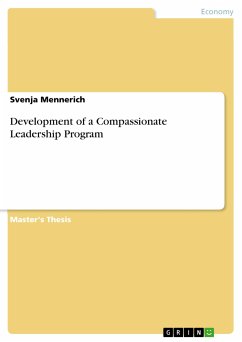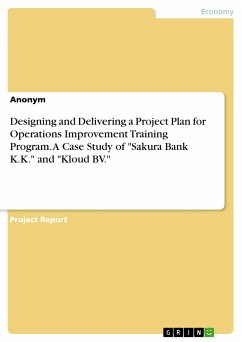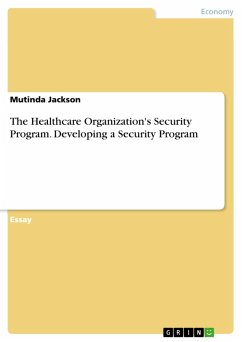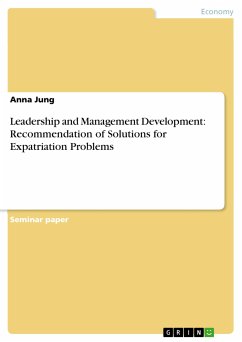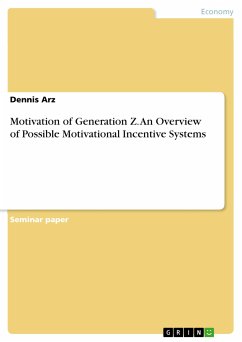Master's Thesis from the year 2023 in the subject Leadership and Human Resources - Management Styles, grade: 1,0, Academy for health and sport, language: English, abstract: The demand for leadership development in corporate organizations is increasing. This is strongly driven by after effects of the COVID-19 pandemic, political unrest and technological advancements that lead to ongoing change. High stress levels among employees require innovative approaches in leadership. This study explores the potential of a compassionate leadership program to alleviate workplace stress. Compassionate leadership, characterized by a balance between care for individuals and the courage to tackle challenging tasks, has shown promise in improving employee satisfaction and psychological well-being. However, there is a deficiency of research on developing and deploying a compassionate leadership program within corporate settings. This study aims to bridge this gap by presenting a two-phased programmatic approach that integrates group training and individual coaching, the latter to encounter the problem of training transfer, the extent to which learning is applied back in the workplace. The first phase involves a three-hour on-site training focused on the dimensions and benefits of compassionate leadership. The second phase includes a sixty-minute one-on-one virtual coaching session utilizing the GROW coaching model. Participants are supported by a self-reflection journal to enhance individual reflection and learning successes. To optimize organizational resources and time, the program's total time investment has been kept to a minimum of four hours per leader. This exploratory study evaluates the extent of knowledge enhancement in compassionate leadership and individual perceived training transfer following the coaching session with twenty-seven leaders through pre- and post-surveys. The training demonstrated promising outcomes, exhibiting an increase in the mean value from 3.3 pre-training to 4.7 post-training. A positive assessment of training transfer through individual coaching sessions could only be confirmed partly. Insights gained from this research can guide organizations in efficiently implementing compassionate leadership programs, ultimately leading to more people-centered workplaces and empowering leaders to cultivate self-care and overall well-being. The theoretical framework, program development, pilot deployment, and evaluation phases are discussed, before limitations and recommendations are addressed further. To test the effectiveness and longitude of the compassionate leadership program, future research is required.
Dieser Download kann aus rechtlichen Gründen nur mit Rechnungsadresse in A, B, BG, CY, CZ, D, DK, EW, E, FIN, F, GR, HR, H, IRL, I, LT, L, LR, M, NL, PL, P, R, S, SLO, SK ausgeliefert werden.

